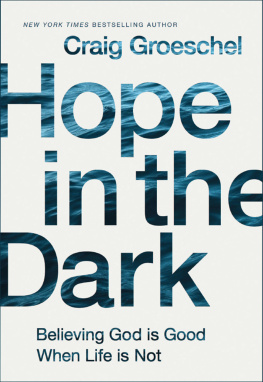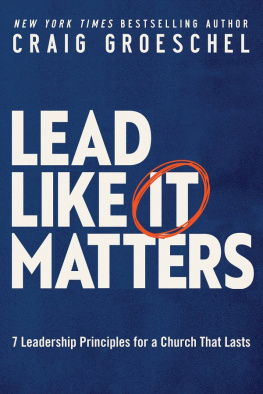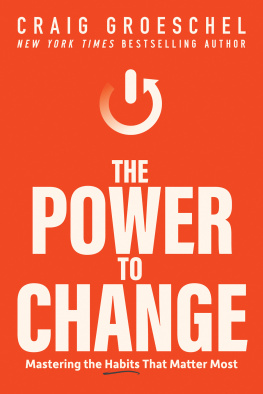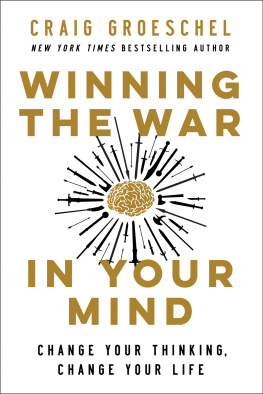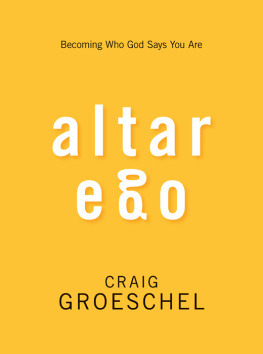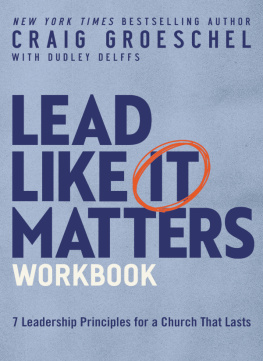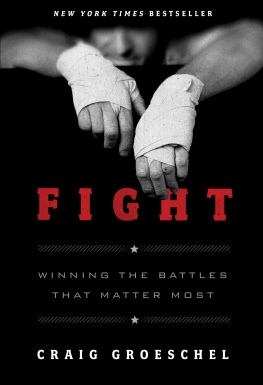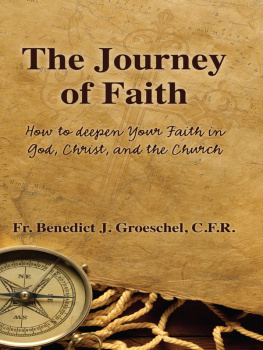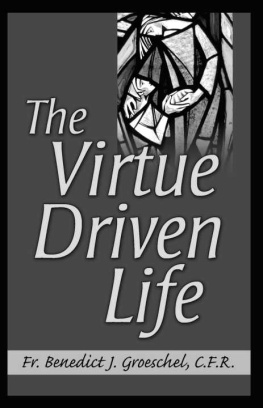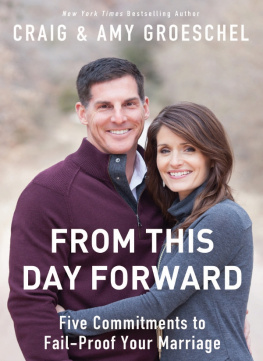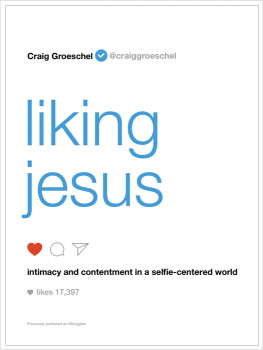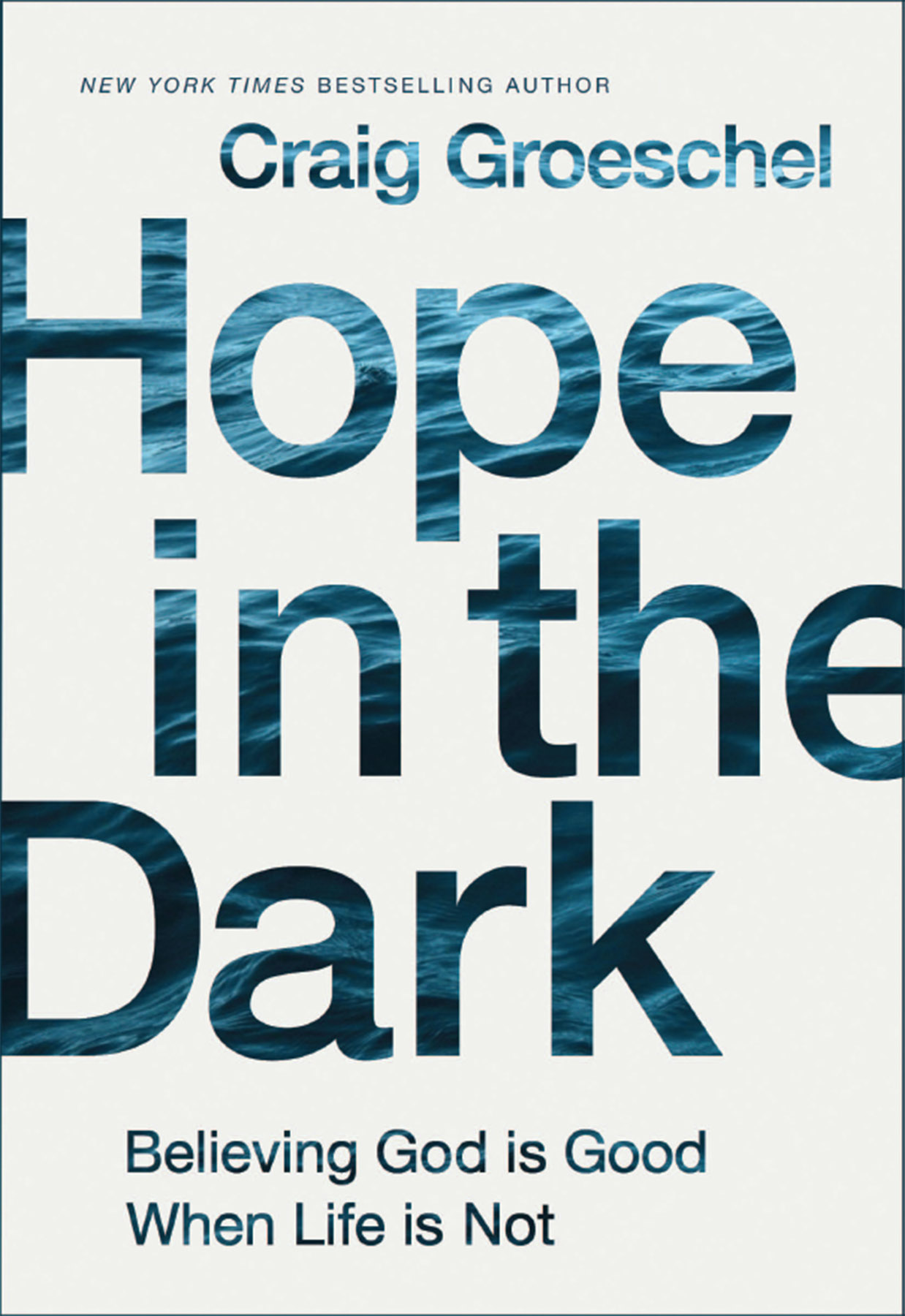Contents
Guide
Human beings do not readily admit desperation. When they do, the kingdom of heaven draws near.
Philip Yancey
P ainful trials are fertile ground for the seeds of doubt. But life doesnt have to fall apart for someone to start questioning the presence and goodness of God. My first bout with doubt didnt strike during a difficult time; rather it hit during an otherwise ordinary moment in, of all places, a church.
When I was growing up, my family went to church semiregularly. Naturally, as a kid I just assumed thats what everybody elses families did too. I also assumed that everything I heard about God was true, just as I knew that two plus two equals four and that the Dallas Cowboys were the best team in the NFL. But then, sitting in church one Sunday morning when I was probably about ten or eleven, a buzzing swarm of questions suddenly descended and began to sting my consciousness: What if all this stuff Ive always believed isnt true? What if God isnt real? And if he is real, is he involved in our livesin my life? Does he really care?
I looked all around, trying to see if anyone else was wrestling with the same intrusive thoughts. No one else, or at least no adults, seemed the least bit antsy or uncomfortable. (Later I learned that appearances can be deceiving.) It wasnt that I suddenly stopped believing what our preacher was saying; honestly, I dont even remember what he was saying. But it was clear that the foundation of my young reality had started to crumble.
The more I thought about the questions I was having, the more questions I seemed to have. If God was in control (as he was supposed to be), then why did so many bad things happen? Granted, my own life was pretty good; I had loving parents and plenty to eat and a warm, dry house. But I was old enough to realize that a lot of people didnt have those things. I had friends whose parents had gone through bitter, angry divorces, and friends who had only one parent at home. I knew kids who got so ill that they had to stop coming to school. The headlines on the news began to penetrate my cartoon-addled mind in a way they never had before, awakening me to bad things happening in the world every day: war, murder, poverty, corruption.
And once those doubts crept in, they lingered. It was as if they had managed to find a secret passage into my mind, and I wondered if I could ever get rid of them. For years I warred with a private spiritual dilemma. If you were to ask me, Are you a Christian? I would have said, Of course. Almost everyone I knew back then would have said the same thing. After all, we werent Buddhists or Muslims. I claimed to be a Christian, but my life didnt look anything like Christs. And secretly I wasnt even sure what I really believed about God. If he was real, I assumed, my doubts probably disappointed himor worse.
It wasnt until college that I truly understood the gospel and what it means to follow Jesus. And for the first time in my life, I started reading the Bible. I was shocked to find that some of the people in the Bible had doubts, just like I did. Thankfully, many of the Bible stories and teachings addressed a bunch of the questions Id silently wondered about for years. It wasnt as though suddenly I had found a giant flyswatter I could use to bat them all down. It was more like discovering new paths through a familiar forest. I still saw the treesall of those bad things in the worldbut now I also saw a trail leading to the clearing before me. The trees were still all around me, but they no longer stopped me from moving forward.
Until I ran smack into a giant redwood in seminary.
HERES WHAT I THINK OF THIS BOOK! EXCLAIMED MY NEW Testament professor as he threw the Bible across the classroom in contempt. Its time you learned the truth about the fairy tales youve been basing your faith on.
You may find that hard to believe, but its true. While I had some awesome, faith-filled seminary professors, men and women who helped prepare me to be an effective pastor, I had others who were shockingly hostile not only toward all that Id been raised to believe but even toward God. Just like life itself, my seminary experience was a rollercoaster ride of faith and doubt, despair and hope.
My decision to go there was amazing enough already.
When I felt God calling me into ministry, I was as surprised as anyone. Its not that I was unwilling; it was simply that as a former wild frat-guy-jock-business-major turned Christian, I didnt exactly fit the stereotype I had in my head of what a pastor should look like. By the grace of God, my pastor invited me to join the church staff to help reach some of the younger people the church was missing. My newlywed wife, Amy, and I felt overwhelmed with excitement, honored to be serving God full-time in our church.
When it became obvious that a seminary degree would be an important step in my developmentand necessary for my futureI enrolled while still working full-time. Even though the thought of all that extra work and studying intimidated me, I was excited at the prospect of strengthening my faith and becoming better equipped to fulfill all that I felt God leading me to do.
So imagine my shock when I discovered a jaded, cynical attitude among some of my professors and some of the other students. The way they talked, only someone naive or uneducated could really believe in and accept the Bible literally as Gods Word.
Without a doubt, my New Testament professor was the worst offender. He didnt believe that Jesus had said or done most of what we find recorded in the Gospels. According to this teacher, Paul wrote only a few of the letters that we attribute to him, and John was most likely coming off a bad drug trip when he wrote Revelation.
I was stunned. Devastated. This guy had more degrees than I had tennis trophies. He was brilliant and even revered in certain theological circles. Someone with his credentials had to know what he was talking about, right? Suddenly the questions that Id thought were dead and gone sprang back to life. Could what he said be true? Was it possible that the Bible wasnt really the timeless, inspired Word of God? Was God real? What if none of it was true? All my previous doubts came flooding back into my mind. As a child, I hadnt told anyone because I was afraid of what they might think. As an adultand a pastorI was paralyzed with fear. No one could know. What would they think? Nothing could be worse than a pastor unsure of his faith.
So I struggled uphill with my doubts for a while, painfully aware of the many tall trees blocking my path. Eventually, though, I mustered the courage to open up to two people: my pastor and another professor. These wise and mature mentors didnt criticize me or disparage my questions; they gave me permission to wrestle. Then they helped guide me back to truth. What meant the most to me was when they talked openly about their own faith struggles and explained how God had sustained them through their doubts. Their living example taught me that honestly facing my doubts could strengthen my faith and that God would show himself faithful through the process.
My faith may have been on life support, but it didnt just survive; it grew and strengthened. It was as if God made a path through a forest of doubts.
At least until the next obstacle blocked my way.
ITS TEMPTING TO THINK THAT MANY OF US WILL REACH A POINT in our lives where well be forced to question all that we believe, and then after this struggle well never doubt again. The truth, however, is that all of us test our beliefs every day. Every time you make a decision about how to respond to someone who is rude to you, your beliefs are front and center. Every time you feel that ache in your body, a reminder of the emergency surgery youre still paying for two years later, you wonder if youll recover, not just physically but financially as well.

